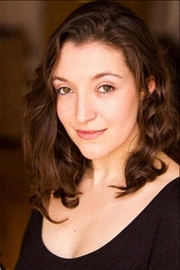Tutor HuntResources Singing Resources
Singing And The Serious Child
Date : 13/12/2012
Author Information

Uploaded by : Ruth
Uploaded on : 13/12/2012
Subject : Singing
Whilst I strongly believe that all children should learn music from a young age, I am often disappointed by the emphasis that is placed onto `logic` at the very beginning. We see children bent over grey textbooks, completing grammar exercise after grammar exercise, playing scale after scale. Like this, learning music becomes a test of endurance for the more naturally right-brained learner; it`s no wonder that so many children abandon their instruments early on (or even, in the case of a friend of mine, throw their violin out of a window). Conversely, for those students that enjoy the structure and definite nature of mathematics, this way of learning poses no real challenge. In both cases the learner is not truly engaged with the end result: an audience feeling something.
As a professional opera singer I am well aware of the importance of musicianship and how inevitably limited the 'illiterate singer' will be. However, the only way of engaging a learner with something as difficult as the musical language is by keeping the right-brain happy at the same time.
Here are some of the ways in which I try to achieve this in my classes:
Always use practical examples: It's not enough to explain cadences in the context of line from a score on a sheet of paper. Whilst repeating paper exercises enough may mean that the student passes a theory exam, they will not be able to apply their knowledge when performing or composing music. In this case I ask my students to listen to some pieces of music which they enjoy and identify cadences from within them. Not only this, but I would want the student to be able to hear why the composer might have made the choices that they have done (i.e. Why would Mozart want to use a perfect cadence at the end of a piece? What effect does it create for the listener? How would this be different if he used an imperfect cadence instead?) In this way my students can link what they see on paper to what they hear and feel as a listener.
Move as much as possible: Private tutors have the complete luxury of dealing with students on a one-to-one basis. This means that if you want to play a game, or move about, then it's completely possible without taking up huge amounts of time. Moving not only provides light relief from staring at the piano, or a sheet of music, but it engages a different part of the brain. Here are some of the reasons why moving about is essential for performers: We need to feel music in our bodies; something that cannot be achieved sat at the dining room table or stood upright like a soldier in front of the piano. I encourage younger students to walk the pulse of the music and mess around with silly dances to get them loose and listening. Singers are actors. If a student feels like their character would be pacing when singing their song or aria, then I would encourage the student to pace! Composers write so many clever acting cues into their music that it would be disrespectful to ignore them! A singer's instrument is their body. Depending on the student's level, I start every class with some basic warm-ups for the body as well as the voice. Listen to music: This sounds obvious, but it's surprising how few music students actually listen to the music that they want to perform. Not only do we perform the music that we love with a greater degree of honesty, but we learn best from other people. If students can distinguish a good performance from a bad one, then they can start to use their own musical tastes and instincts to improve their singing.
All in all, it's important for me to feel like my students have a passion for the music that they perform, something which cannot be nurtured through old-fashioned and inflexible methods.
I would encourage my students to play music with the seriousness of a child, so it's important for me to teach like one.
This resource was uploaded by: Ruth
